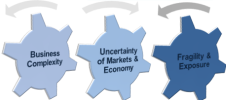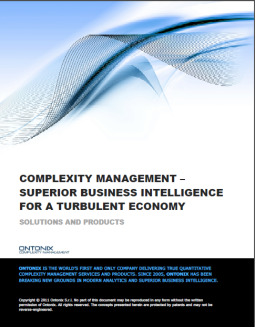A Complexity Manifesto, Capitalists Continue to Increase Complexity Within Their Spheres of Production
Thursday, 11 November, 2010 Leave a comment
“Every limit appears as a barrier to be overcome” – Karl Marx (describing the world through a capitalist’s eyes)
There has been much debate since the global financial crisis of 2008 about what exactly happened and why. Some analysts believe that a period of deregulation in the financial sector, including the infamous repeal of Glass-Steagall (separating commercial and investment banking activities) [1], combined with reckless managerial decisions was the primary driver of a housing bubble, which led to a credit crunch and economic recession. Conservatives and libertarians tend to place the blame on government intervention in the housing and financial markets through Congressional legislation, such as the Community Reinvestment Act (putting pressure on banks to issue credit in low-income neighborhoods) [2], and the Federal Reserve’s loose monetary policy (targeting low interest rates during the tech and housing bubbles) [3].
More creative analysts trace the problem back at least several decades to a global credit bubble which has continuously been supported by both private economic actors and public policies [4]. Despite the significant differences in the views of these factions, there is an undeniable trend towards questioning economic dogmas previously thought to be fundamental and sound. Complexity theory provides a useful framework to analyze the inherent limits of our current economic system, which is now in the process of gradually breaking apart. It is especially insightful when applied to the dynamics of a global economy marked by capitalist relations of production.











